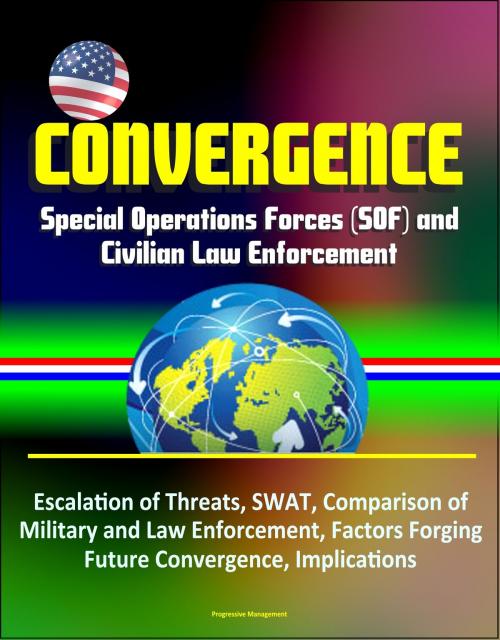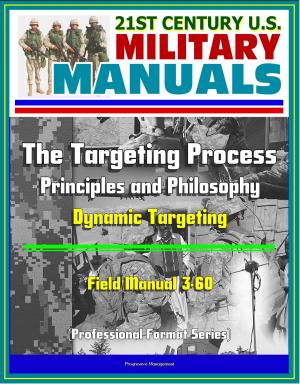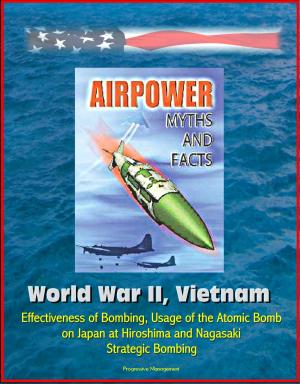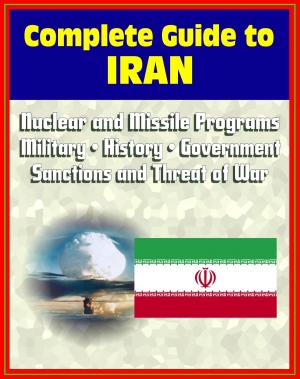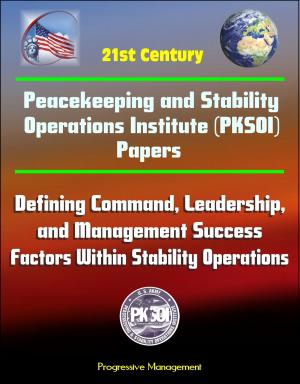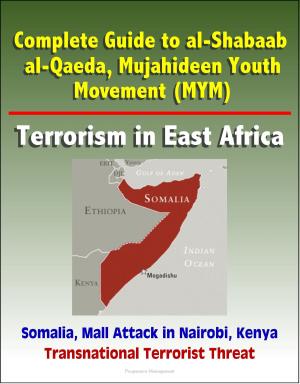Convergence: Special Operations Forces (SOF) and Civilian Law Enforcement - Escalation of Threats, SWAT, Comparison of Military and Law Enforcement, Factors Forging Future Convergence, Implications
Nonfiction, Social & Cultural Studies, Political Science, Politics, Law Enforcement, History, Military| Author: | Progressive Management | ISBN: | 9781311376015 |
| Publisher: | Progressive Management | Publication: | April 13, 2016 |
| Imprint: | Smashwords Edition | Language: | English |
| Author: | Progressive Management |
| ISBN: | 9781311376015 |
| Publisher: | Progressive Management |
| Publication: | April 13, 2016 |
| Imprint: | Smashwords Edition |
| Language: | English |
This excellent report has been professionally converted for accurate flowing-text e-book format reproduction. This monograph about the convergence of Special Operations Forces (SOF) and civilian law enforcement activities is timely considering the U.S. Government's revamped strategies to promote more capable and effective governments and improve security in southwest Asia. The strategic concept includes fully resourcing security training for military and police forces. U.S. strategic objectives envision two outcomes: a) governments that can provide effective internal security with limited international support and b) military and police security forces that can lead the counterinsurgency and counterterrorism fight with reduced U.S. assistance.
If Dr. Alexander's thesis is correct—that adequate training is needed for SOF to conduct missions involving police-like activities—other nations' security forces also will require much the same training in order to effectively provide for their countries' internal security and deal effectively with the challenges of combating terrorism and insurgency. Dr. Alexander asserts that success in southwest Asia will hinge, in part, upon U.S. and host-nation military operations that effectively incorporate some police-type tasks (e.g., gathering and securing evidence) and law enforcement operations by police units that require military-like support (e.g., armored protection and heavy weapons).
This monograph invites us to consider another dimension of the convergence of police and military activities. Because SOF typically supports host-nation internal defense and development activities, it seems likely that they will be more involved in assisting with police training—an activity that falls principally to the civilian police (CIVPOL) programs of other U.S. and international agencies such as the U.S. Department of State Office of Civilian Police and Rule of Law, the United Nations Office of Rule of Law and Security Institutions, and the CIVPOL program of the Organization for Security and Cooperation in Europe. Sound law enforcement procedures during counter-terrorism actions on the objective can demonstrate U.S. commitment to the rule of law and propel military information support operations in directions that enhance the legitimacy of host-nation governments. If the U.S. policy continues to identify terrorism as a criminal act, unlawful violence, or a violation of the criminal laws of a country, Dr. Alexander's argument for appropriate police training for SOF seems unassailable.
Chapter 1 - Introduction * Chapter 2 - Escalation of Threats to Law Enforcement * Chapter 3 - Comparison of Military and Law Enforcement Operations * Chapter 4 - Comparison between SOF and Law Enforcement Agencies * Chapter 5 - Factors Forging Future Convergence * Chapter 6 - Implications of Convergence * Chapter 7 - Summary
This excellent report has been professionally converted for accurate flowing-text e-book format reproduction. This monograph about the convergence of Special Operations Forces (SOF) and civilian law enforcement activities is timely considering the U.S. Government's revamped strategies to promote more capable and effective governments and improve security in southwest Asia. The strategic concept includes fully resourcing security training for military and police forces. U.S. strategic objectives envision two outcomes: a) governments that can provide effective internal security with limited international support and b) military and police security forces that can lead the counterinsurgency and counterterrorism fight with reduced U.S. assistance.
If Dr. Alexander's thesis is correct—that adequate training is needed for SOF to conduct missions involving police-like activities—other nations' security forces also will require much the same training in order to effectively provide for their countries' internal security and deal effectively with the challenges of combating terrorism and insurgency. Dr. Alexander asserts that success in southwest Asia will hinge, in part, upon U.S. and host-nation military operations that effectively incorporate some police-type tasks (e.g., gathering and securing evidence) and law enforcement operations by police units that require military-like support (e.g., armored protection and heavy weapons).
This monograph invites us to consider another dimension of the convergence of police and military activities. Because SOF typically supports host-nation internal defense and development activities, it seems likely that they will be more involved in assisting with police training—an activity that falls principally to the civilian police (CIVPOL) programs of other U.S. and international agencies such as the U.S. Department of State Office of Civilian Police and Rule of Law, the United Nations Office of Rule of Law and Security Institutions, and the CIVPOL program of the Organization for Security and Cooperation in Europe. Sound law enforcement procedures during counter-terrorism actions on the objective can demonstrate U.S. commitment to the rule of law and propel military information support operations in directions that enhance the legitimacy of host-nation governments. If the U.S. policy continues to identify terrorism as a criminal act, unlawful violence, or a violation of the criminal laws of a country, Dr. Alexander's argument for appropriate police training for SOF seems unassailable.
Chapter 1 - Introduction * Chapter 2 - Escalation of Threats to Law Enforcement * Chapter 3 - Comparison of Military and Law Enforcement Operations * Chapter 4 - Comparison between SOF and Law Enforcement Agencies * Chapter 5 - Factors Forging Future Convergence * Chapter 6 - Implications of Convergence * Chapter 7 - Summary
